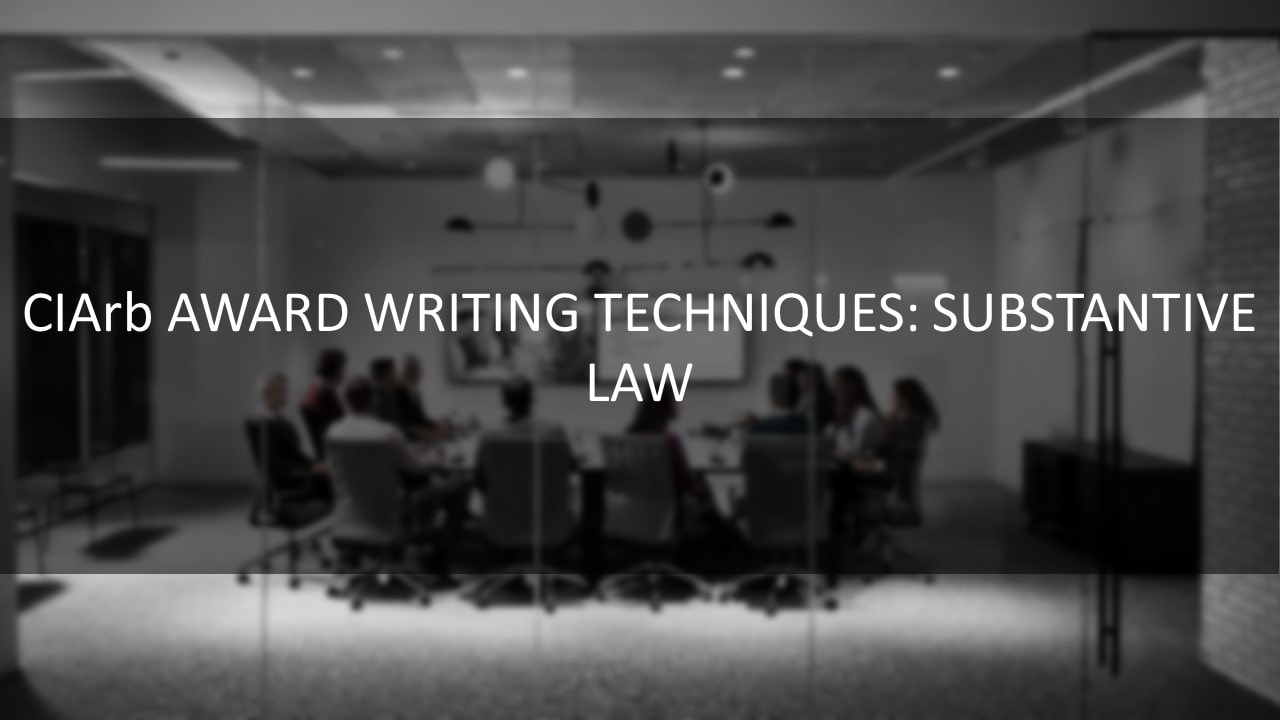CIArb AWARD WRITING TECHNIQUES: SUBSTANTIVE LAW Party autonomy is the pillar of arbitration. However, the party fails to choose the choice of law apply to the substantive law of the arbitration, this may open up challenge to the substantive law:
Substantive Law
------------------------------------ [i] Sulamerica v Enesa[2013]1WLR102 [ii] Enka v Chubb[2020]UKSC38 [iii] Lancashire CC v Municipal Mutual[1997]QB897:verba ita sunt intelligenda ut res magis valeat quam pereat, contract should be interpreted so that it is valid rather than ineffective. [iv] Arbitration agreement is a contract; naturally should be governed by the substantive law governing the contract; but by applying the ‘doctrine of severability’, it rarely contradict the substantive law. [v] The ambit of this exception is unclear. S.6 of the Arbitration (Scotland) Act 2010 create a default rule in favour of the seat being the law governing the arbitration agreement, when the choice of law governing the arbitration agreement is absent. [vi] Kabab-Ji v Kout Food[2020]EWCACiv6 [vii] Sulamérica v Enesa Engenharia [2012] EWCA Civ 638 [viii] Kabab-Ji v Kout Food Group [2020] EWCA Civ 6 [ix] Enka v Chubb[2020]UKSC38
0 Comments
Leave a Reply. |
AWARD WRITING BLOG FOR ARBITRATIONObjective of this Page:I am sharing these information with a caveat that these information is for educational purpose only and shall not be taken as an advice be it legal or otherwise. You should seek proper advice to your case with the relevant professionals. The author cannot guarantee the accuracy of the information so provided here.
ArchivesCategories
All
|
- Home
- About
-
Practice
-
DYA + C
-
Consultant
-
Educator
- Author I am...
- Speaking Engagement >
- Attempting Law School
- Journey in USM(Arch) >
- Discourse in Studio 6 >
-
d:KON 4
>
- Actors >
-
Acts
>
- Portraiture
- A Slice of Space Time
- Box of Installation of Lights
- Radio Misreading
- Grid of Destinies
- Shelter
- Anatomy of Pain
- Tensigrity of Ego
- Of Prisons and Walls
- Forest of Nails
- Curtain of Fears
- Dissolution of the Ego
- If it's Ain't Broken it's Ain't Worth Mending
- Flight of Freedom
- Cross of Complexity and Contradiction
- interrogation
- Stage >
- Play
- Approach
- Galleria >
- External Critique >
- Philosophy
- Codes Regulations & Standards >
- Photo Essays
- Contact



 RSS Feed
RSS Feed
